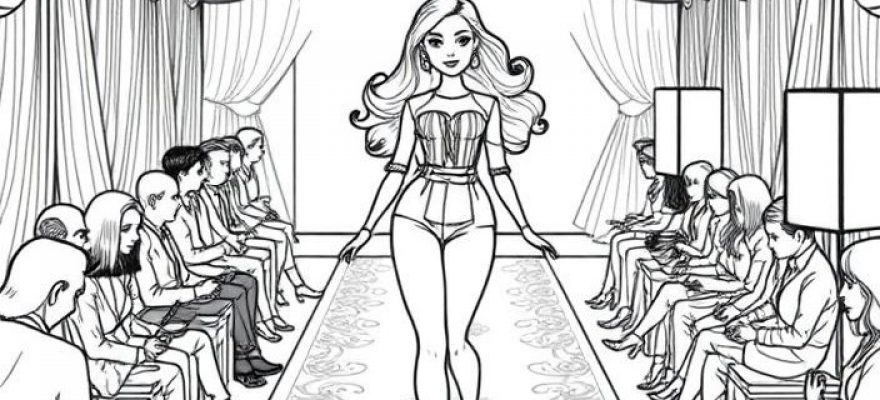Over the past decade, luxury houses have significantly intensified their presence in the seventh art. The Prada Foundation took advantage of the 2025 Venice Film Festival to announce the creation of a €1.5 million fund to support a dozen film projects per year. In the light of the current market, two paths are clearly emerging: whether cultural patronage (I), a historical and disinterested form, or production and co-production (II), a real economic and editorial commitment.
- I – Cultural patronage
In French law, patronage is defined as « the material support provided, without direct consideration from the beneficiary to a work or a person for the exercise of activities of general interest. » (Decree of 6 January 1989 on economic and financial terminology).
It is therefore a donation, from a company or an individual to an activity of general interest, in cash, in kind or in skills, without expecting an equivalent counterpart in return. Only symbolic compensation is allowed and on the conditions that such compasation remains manifestly disproportionate to the donation, otherwise the operation falls into sponsorship.
Indeed, the notion of general interest is at the heart of this practice. Thus, only foundations, associations and public entities that meet the cumulative criteria of general interest within the meaning of Article 238 bis of the General Tax Code are eligible for sponsorship: a non-profit activity, disinterested management and an extended circle of beneficiaries.
The tax system, which is among the most incentive in the world, gives companies a tax reduction of 60% of the amount of the donation up to €2 million in annual donations, and individuals a 66% reduction within the annual limit of 20% of taxable income. It should be noted that donations made to natural persons (authors or directors, for example) do not generate tax advantages.
Beyond the favourable tax provvisions, the spirit of patronage is to invest in a cultural and cinematographic heritage. Chanel illustrates this approach by positioning itself as a patron of the audiovisual industry: the house supports the “Cahiers du cinema” and the “Cinémathèque française”, supports the Chanel Next Prize endowed with a €100,000 support and accompanied by a mentoring program and joins forces with the MUBI platform to launch the Next Prize Collection, a program composed exclusively of films awarded a Chanel Next Prize. All these initiatives are part of a support for creation, without taking control of the audiovisual works.
The Prada Foundation’s initiative is a similar approach, with endowments awarded according to criteria such as quality, originality and vision, with the aim of supporting directors, screenwriters and producers throughout the three crucial phases of filmmaking: development, production and post-production.
Beyond historical patronage, the desire of some luxury houses to invest fully in production, to the point of entering the heart of the production of works, is now affirmed.
- II – Production
As part of the development of a film, a producer will solicit many interlocutors in order to secure funding: CNC, regional funds, distributors and broadcasters, etc. but will also consider contributions from co-producers – simple or delegate.
The delegate producer of an audiovisual or cinematographic work is « the natural or legal person who takes the initiative and responsibility for the production of the work« . It assumes artistic, technical and financial responsibility, warrant the production and exploitation of the work. The « simple » producer makes a contribution to the production, in exchange for a share of ownership of the film and of the operating revenues. The contribution is then made at risk, with no guarantee of return on investment.
In recent years, emblematic luxury brands, such as Yves Saint Laurent, have taken on the role of co-producer.
Created in 2023, Saint Laurent Productions embodies a real producer activity under the aegis of the brand. In this respect, Saint Laurent Productions is presented as a co-producer of international films such as Emilia Perez by Jacques Audiard or The Shrouds by David Cronenberg, but also creative documentaries.
As an example, Saint Laurent Productions is co-producer of « La passion selon Béatrice » by Fabrice du Welz, to which it has provided €600,000 in funding out of a budget of €764,872, as well as the provision of the YSL’s costumes. In return, the company has only 50% of the film’s ownership and a 100% revenue corridor until its contribution is repaid and then lowered to 50%.
However, Saint Laurent Productions ensures that during the shooting and promotion of the film Saint Laurent clothing and accessories are used and that Saint Laurent can use the film and its elements for the promotion of the brand.
CHANEL has also intervened as a financial partner for projects outside the framework of patronage. Thus, the brand invested in Blanca Li’s immersive show Le bal de Paris, providing both significant funding and artistic support.
The setback is still limited, but for the moment there are mainly very favourable financial conditions for the delegate producer, accompanied by strong editorial control in order to satisfy the brand’s image.
We can also see that the commitment of brands to audiovisual and cinematographic creation takes very diverse forms, ranging from patronage to co-production, the implementation of which can be complex and must be adapted to each project. In this context, it is advised to contact a specialized lawyer to obtain effective and appropriate support.
SHARE THIS ARTICLE
CONTACT
OUR OFFICES
INFORMATION
sl@avocatl.com
PHONE
+33.1.83.92.11.67
Address
11 rue Sédillot
75007 Paris
Follow us :
Newsletter
Please enter your e-mail :


